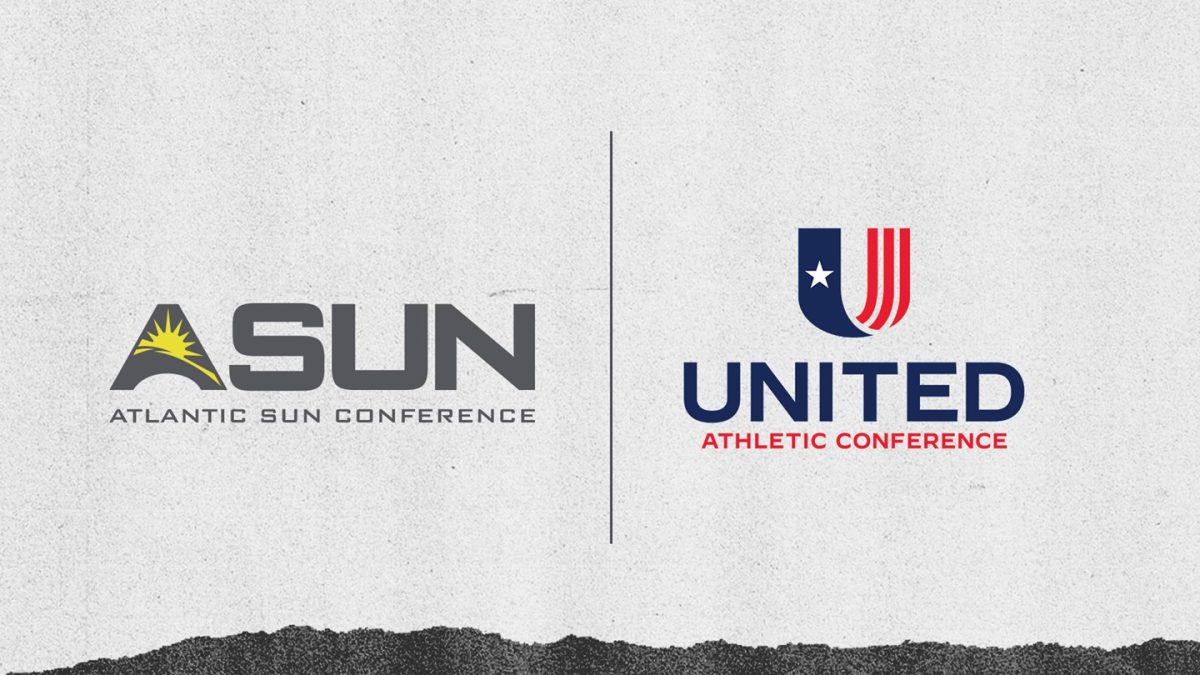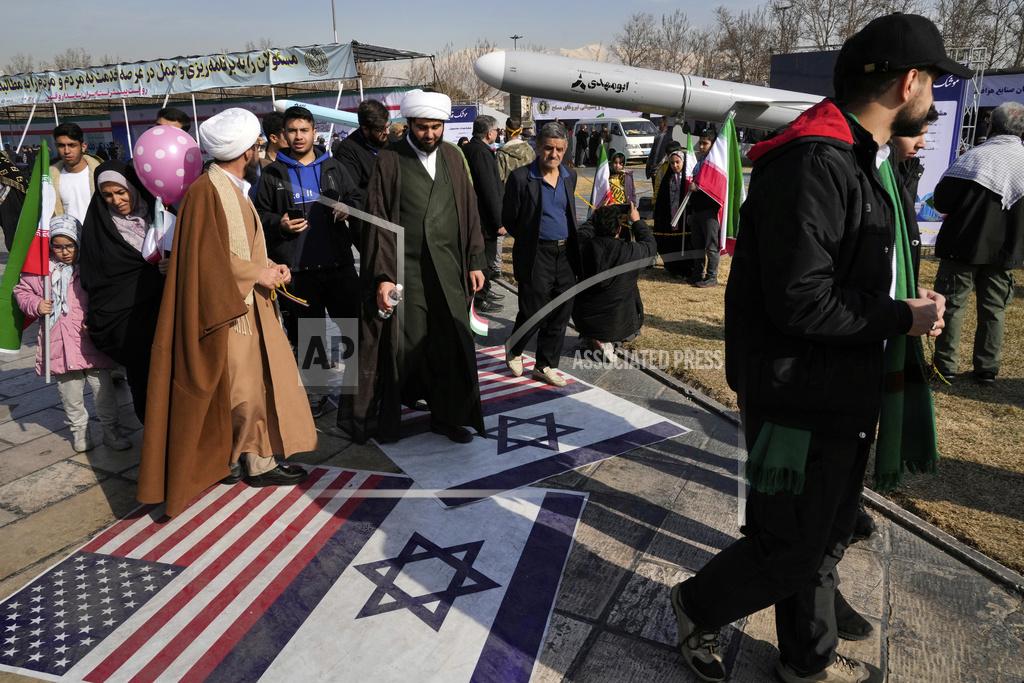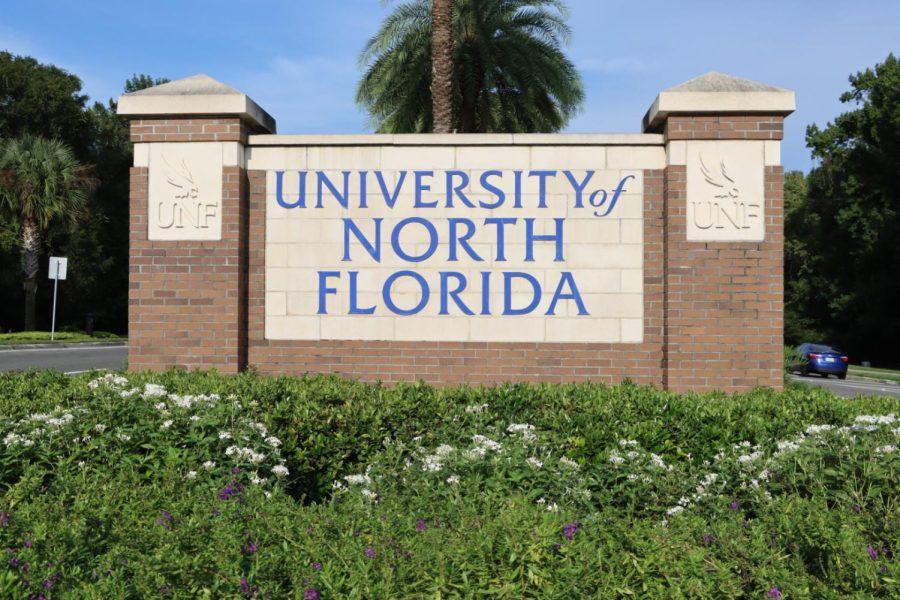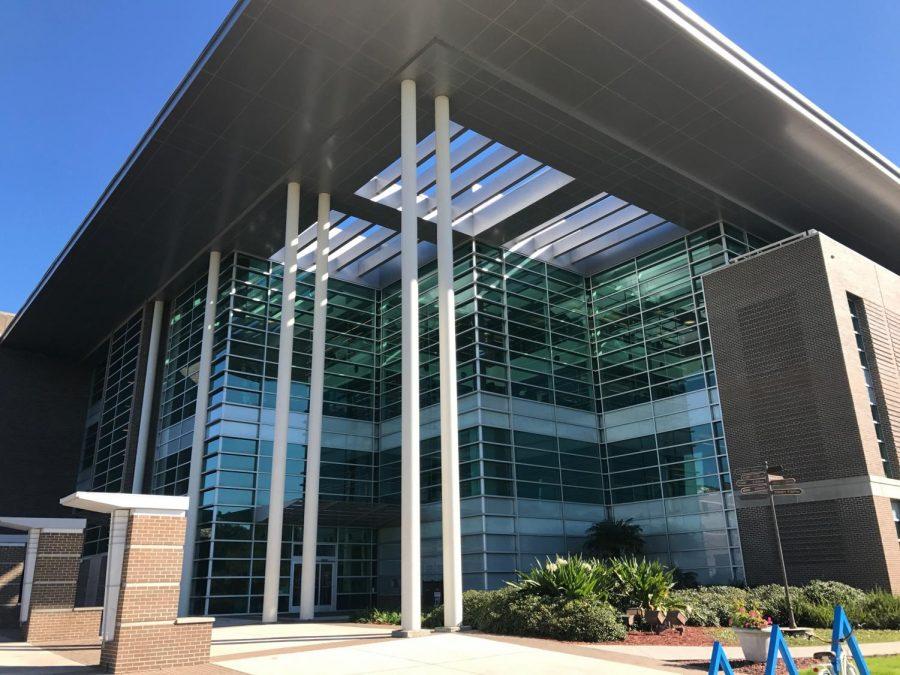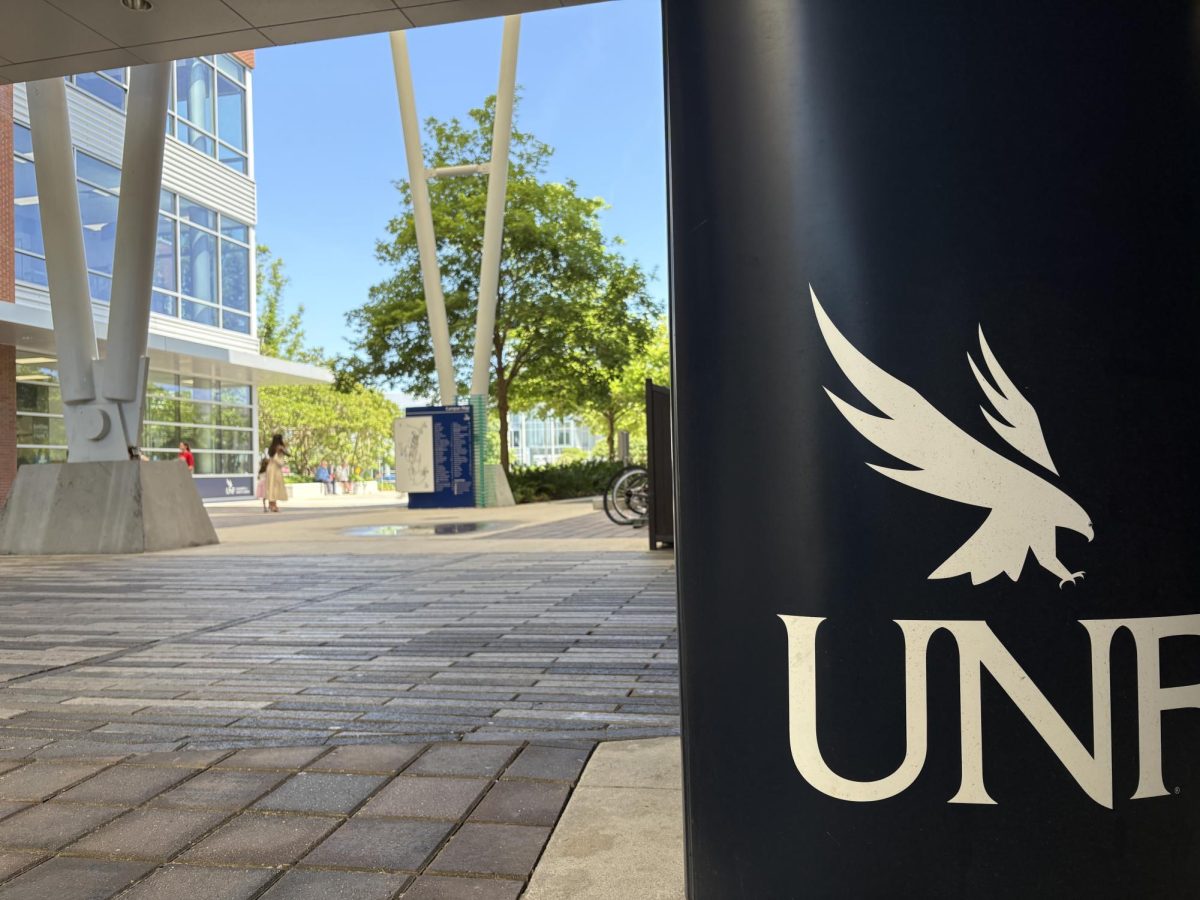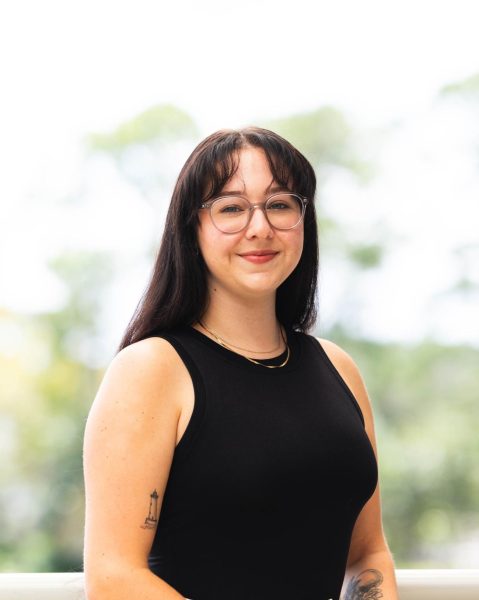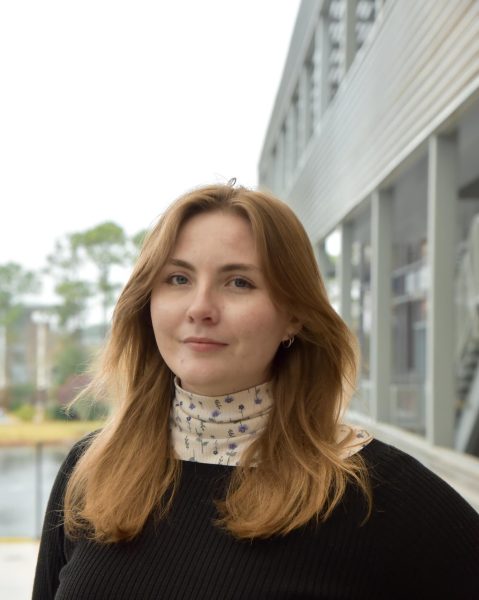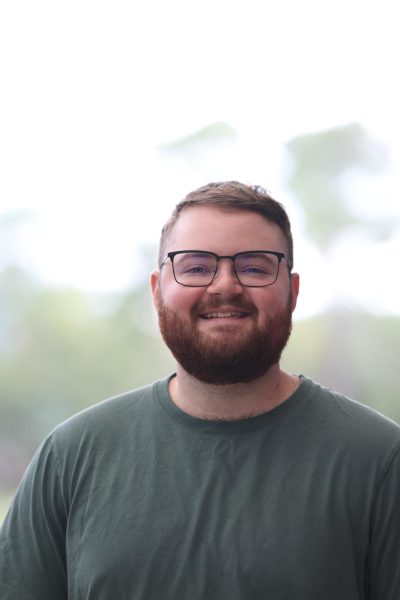The University of North Florida Board of Trustees passed an amendment last month to a university regulation that changes the way people can demonstrate and protest on campus.
The passing of this amendment alters and adds to the list of prohibited acts during Freedom of Expression Activities, time limitations on Expressive Activities, the definition of “time, place, and manner” regarding its appearance in the regulation, and the obligation to comply with university officials regarding disruptive activities.
The Sept. 30 meeting at which the amendments were passed began at 9 a.m., and the amendment vote was completed by 9:16 a.m. According to the meeting agenda, which was available to the public and digitally distributed, the issue was supposed to be voted on later in the meeting.
Along with the changes to the regulation, The BOT also granted UNF President Moez Limayem an incentive compensation bonus and a salary increase. Student Body President Michael Barcal and Student Body Vice President Ashlyn Davidson gave a presentation during the meeting on Student Government initiatives.
BOT meetings are usually held on campus, but this one was held at UNF Mednexus at the FSCJ Deerwood campus. A university spokesperson confirmed that this meeting’s location was decided nearly a year in advance and that an off-campus location was chosen because the on-campus venue was unavailable.
Amendments to the Freedom of Expression in Outdoor Areas of Campus regulation
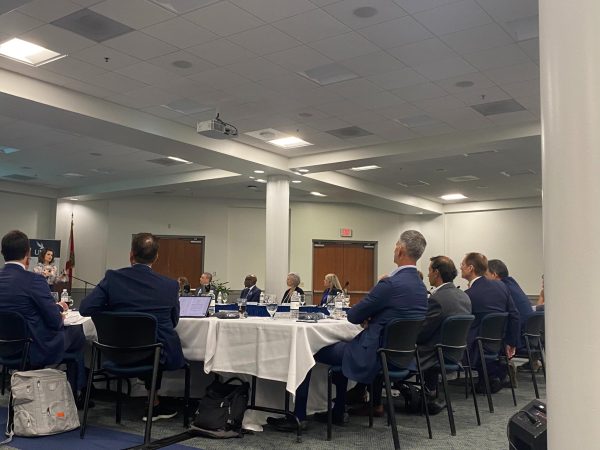
The amendments, which were unanimously approved by the Finance and Facilities Committee and put in front of the board at the meeting, altered language and added new criteria to the university’s Freedom of Expression in Outdoor Areas of Campus regulation.
The amendment was passed within the first 15 minutes of the hours-long meeting. In the meeting’s agenda, the amendment was to be discussed during the “Consent Agenda” section, under the Finance and Facilities Committee, between 9:25 a.m. and 9:35 a.m., but by 9:16 a.m. it was passed and the board had moved on to the next agenda item.
Chair of the Faculty Affairs Committee, James Beasley, was the only trustee to vote in opposition to the amendment.
The consent agendas, including items from the Finance and Facilities Committee, are typically discussed hours into the meetings, often as one of the last topics of the entire meeting, according to previous BOT meeting minutes.
According to the UNF Regulations and Policies, the purpose of the Freedom of Expression regulation is to “provide guidance to persons external and internal to the University regarding their rights of freedom of expression in the outdoor areas of the University’s campus.”
The amended language does not alter the university’s authority under the previous version of legislation, but instead “seeks to provide further guidance to the campus community,” according to the notice of amended regulation.
With the new revisions, students are now prohibited from conducting “Expressive Acts” on university property that is dedicated to a specific university purpose or is access-restricted. Examples include parking facilities, residential facilities, intramural fields, campus gardens, Athletics facilities and more.
Expressive Acts are defined by the UNF Regulations and Policies as “activities such as assemblies, exercise of free speech, protests, demonstrations, marches, and picketing protected under the First Amendment to the United States Constitution and Article 1 of the Florida Constitution.”
The amended regulation emphasizes that the university and the university’s president reserve the right to reconsider approval and determine what is and is not allowed regarding these types of activities.
Spinnaker asked Student Body President and Trustee Michael Barcal for a statement regarding the amendments to Freedom of Expression in Outdoor Areas of Campus. His statement is as follows:
“I respectfully decline to comment, and I deeply thank you for the opportunity.”
Before the meeting, UNF’s Students for a Democratic Society chapter protested outside.
One protestor, Elias Joseph, a UNF senior majoring in coastal and marine biology, was the only person to speak during the public comments section of the meeting.
“Demanding ‘proof of intent’ for harm against students but none for perceived slights against the University shows us where your values lie,” Joseph said to the board. “The way you treat us—your Osprey community—cements your legacy, not the oppressive damage control you’ve attempted so far.”
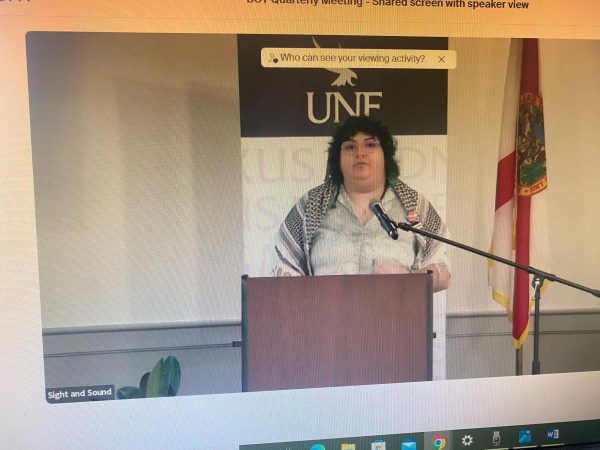
Joseph was a participant in the May 2 protest, where 16 SDS members were arrested in a pro-Palestine demonstration on the UNF Green.
Limayem’s “cost-of-living” raise
Along with the amendment’s passing, multiple presentations, remarks, and updates were given, including the annual presidential evaluation and consideration of incentive compensation.
During its consideration, the BOT unanimously awarded UNF President Moez Limayem a bonus of $100,000.
In addition to the incentive compensation, the BOT unanimously approved Trustee Jay Demetree’s motion to raise Limayem’s base salary by 5%. During the board’s discussion, BOT Chair Kevin Hyde said Limayem did not request a raise and many other board members attested to Limayem’s leadership and expressed their approval, including Student Body President Michael Barcal.
Barcal commented on Limayem’s leadership, saying his enthusiasm has improved his and others’ experiences as students.
“I think he’s doing great, even from an internal perspective,” Barcal said.
Limayem’s base salary is set at $500,000 per year, according to the contract he signed with UNF back in 2022. His contract allows an additional bonus of up to $100,000 per year.
Chair Hyde and other board members discussed how Limayem’s 5% raise would be what Demetree referred to as a “cost-of-living” raise.
“I think we’ve at least got to maintain somewhat the cost of living for [Limayem],” Demetree said.
___
For more information or news tips, or if you see an error in this story or have any compliments or concerns, contact editor@unfspinnaker.com




